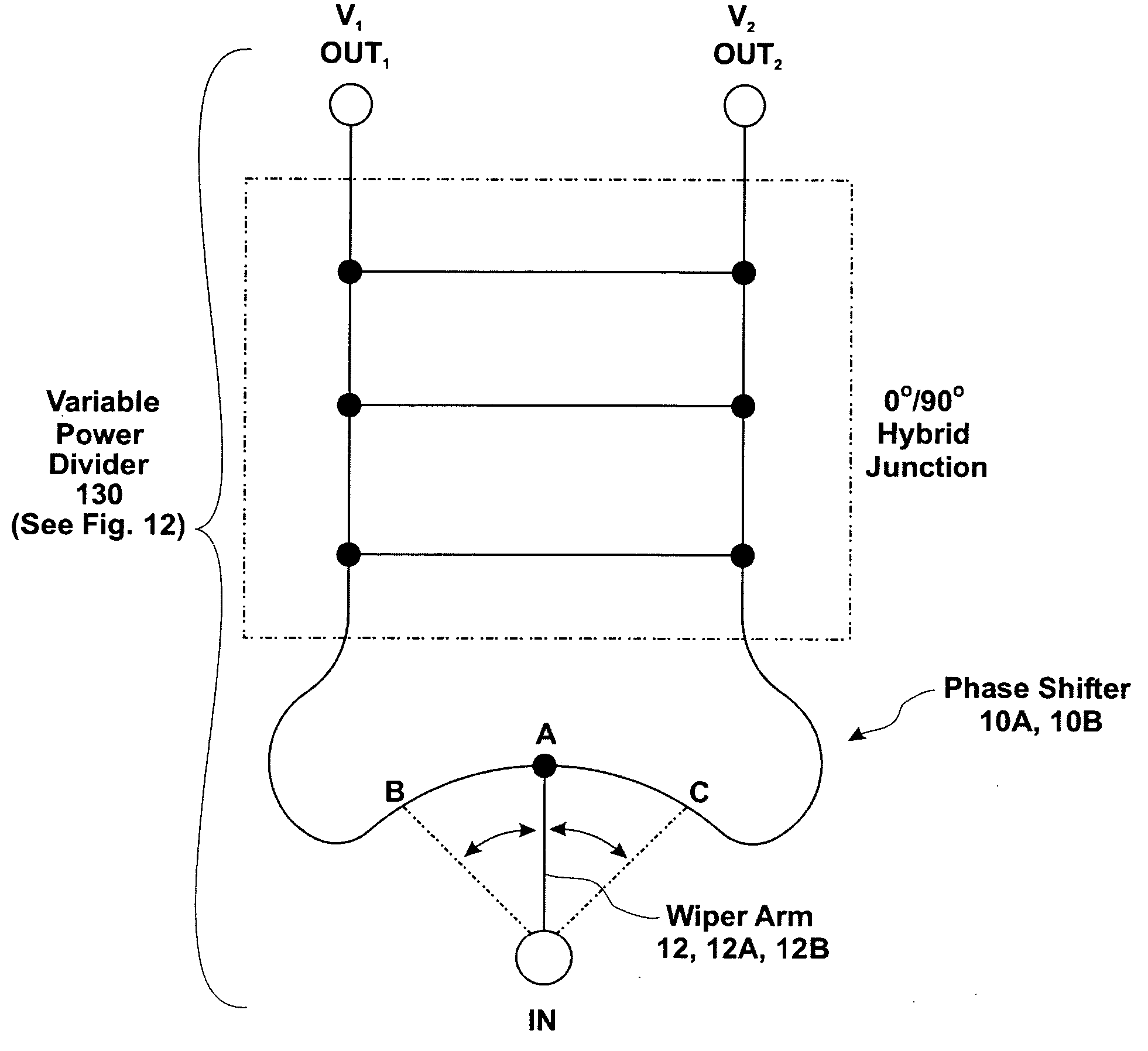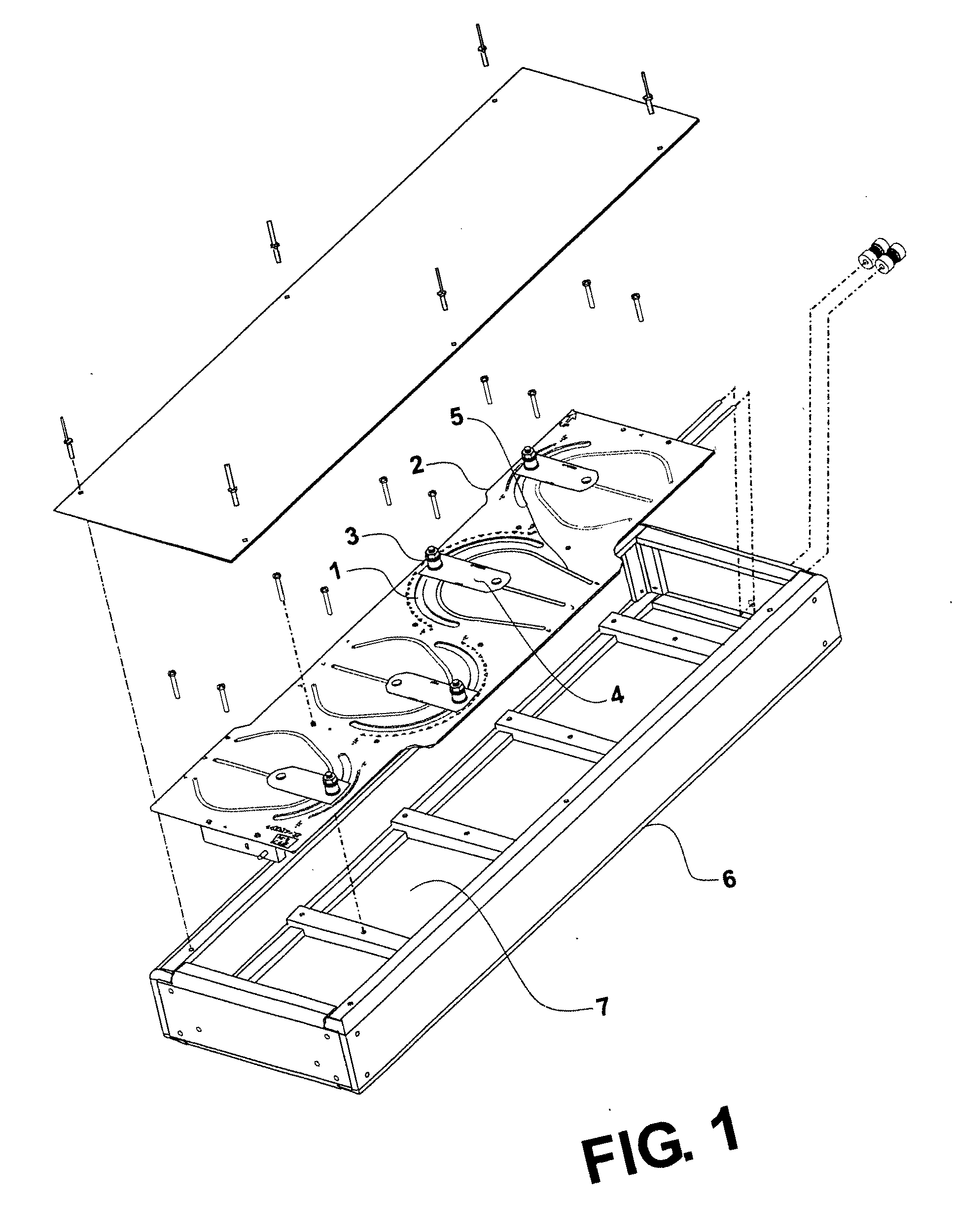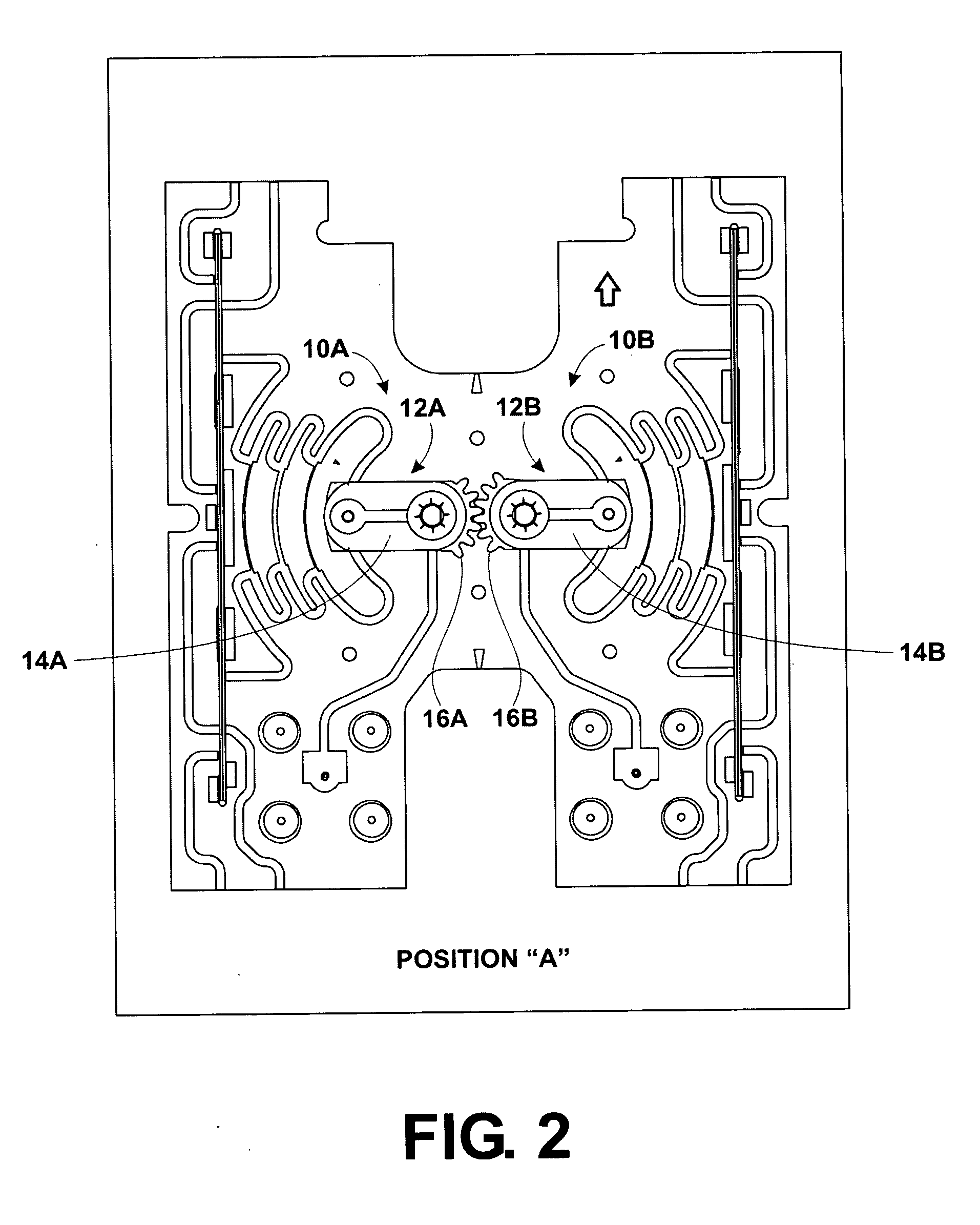Wiper-type phase shifter with cantilever shoe and dual-polarization antenna with commonly driven phase shifters
a phase shifter and cantilever shoe technology, applied in the field of wireless base station antenna systems, can solve the problems of affecting the performance of the phase shifter, the type of phase shifter can experience failure, and the design objective of meeting these competing design objectives is particularly challenging, so as to avoid complicated linkage elements, avoid the effect of complex stress and dimensional changes
- Summary
- Abstract
- Description
- Claims
- Application Information
AI Technical Summary
Benefits of technology
Problems solved by technology
Method used
Image
Examples
Embodiment Construction
[0041] The present invention may be embodied in a wiper-type phase shifter for an antenna, such as a wireless base station antenna, that includes a cantilever shoe wiper arm hold-down mechanism. In particular, this type of phase shifter may be used to drive a beam steering circuit that controls the direction of a beam formed by the antenna, as in a vertical electrical downtilt antenna. However, the phase shifter may also be used to control beam steering in azimuth or any other desired direction. In addition, the phase shifter may also be used to drive systems other than beam forming and beam steering circuits, such as power dividers, analog amplifiers, beam shaping circuits, and any other circuit employing an analog phase shifter.
[0042] The present invention may also be embodied in a dual-polarization antenna including commonly-driven wiper-type phase shifters. In particular, the wiper arms of the dual-polarization antenna are mechanically linked to each other through gear faces cu...
PUM
 Login to View More
Login to View More Abstract
Description
Claims
Application Information
 Login to View More
Login to View More - R&D
- Intellectual Property
- Life Sciences
- Materials
- Tech Scout
- Unparalleled Data Quality
- Higher Quality Content
- 60% Fewer Hallucinations
Browse by: Latest US Patents, China's latest patents, Technical Efficacy Thesaurus, Application Domain, Technology Topic, Popular Technical Reports.
© 2025 PatSnap. All rights reserved.Legal|Privacy policy|Modern Slavery Act Transparency Statement|Sitemap|About US| Contact US: help@patsnap.com



